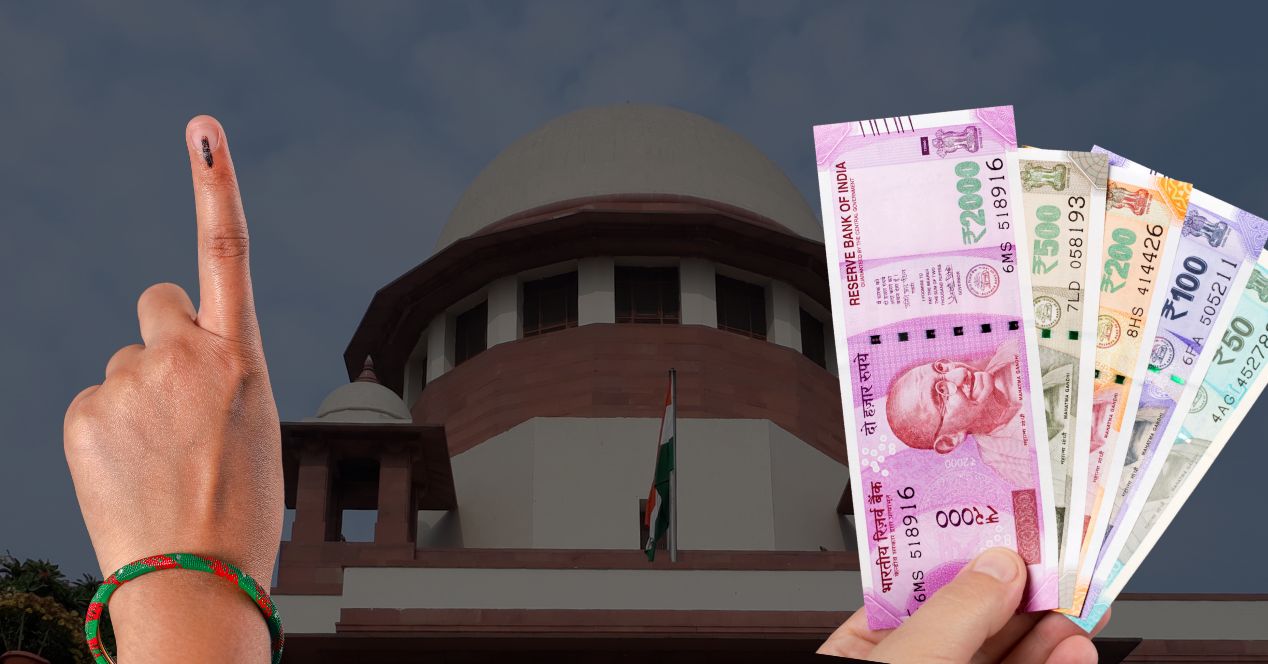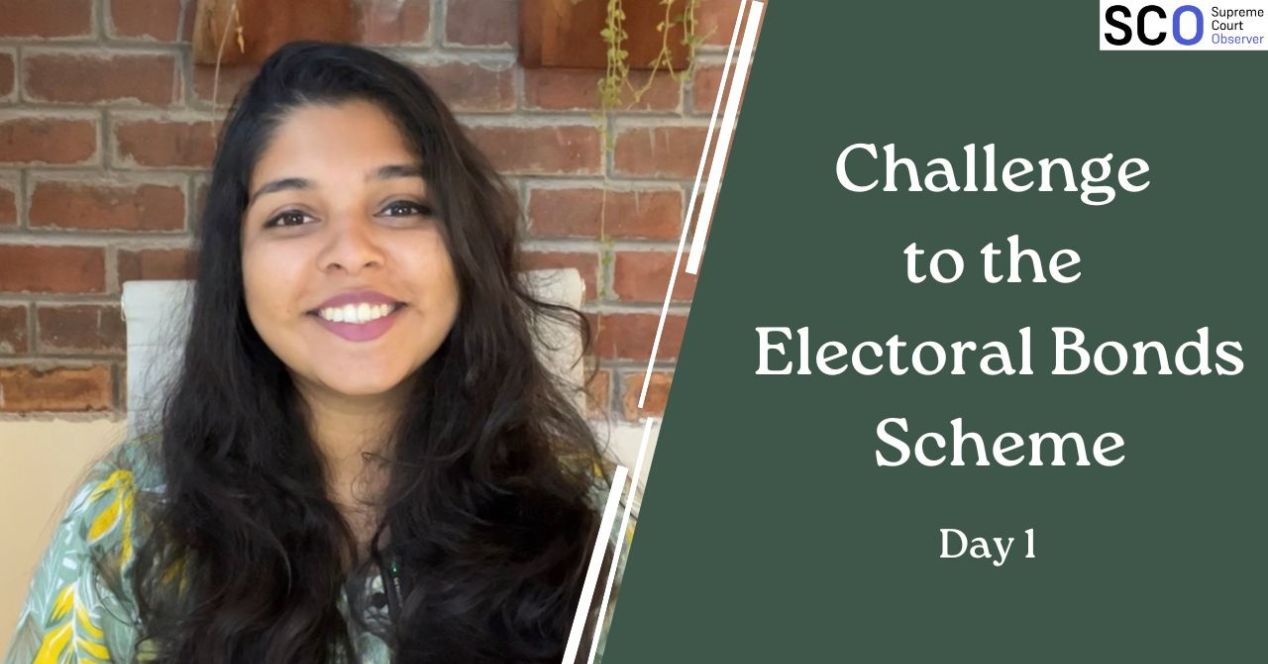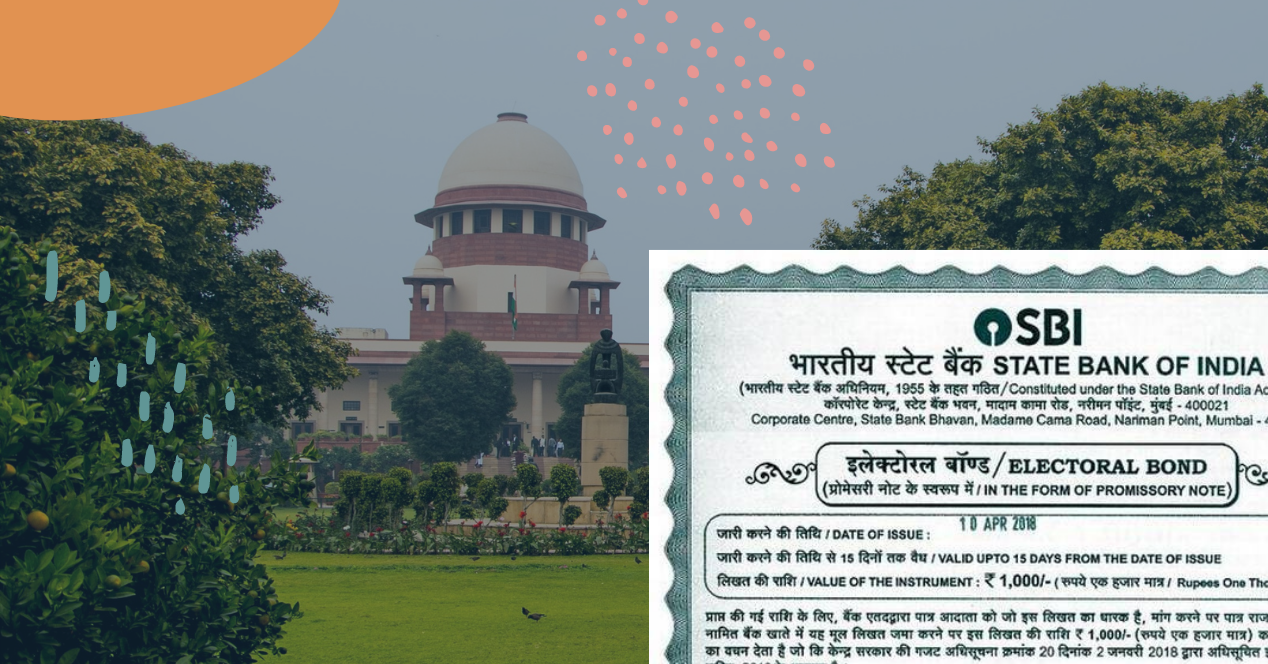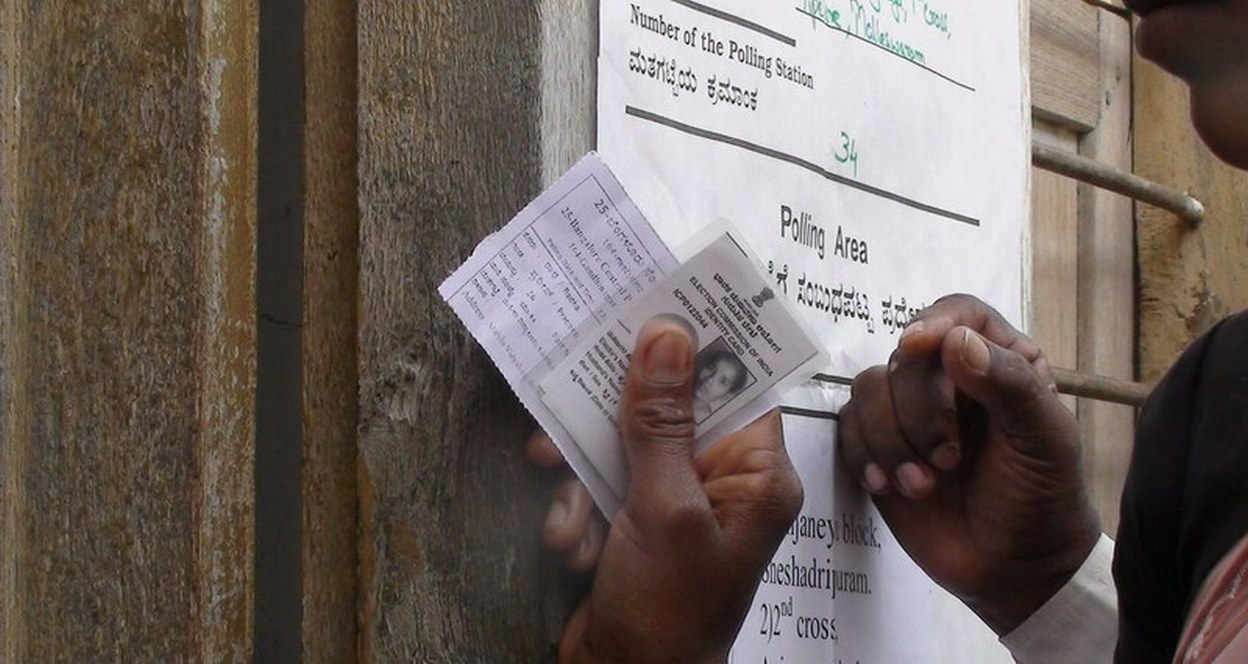Channel
Privacy v Transparency: The Electoral Bonds Story
What impact does the Electoral Bonds Scheme have on the Indian Democracy? What is the challenge against it?
Transcript:
Hello and welcome to SCO Explains! I am Sai Spandana and today we’ll be talking about an interesting question that came up in the electoral bonds case at the Supreme Court. What is the balance between the right to information and the right to privacy?
The Supreme Court heard the electoral bonds case over three days of hearings on 31 Oct and 1st and 2nd of November. SCO’s Gauri Kashyap, who reported on the hearings, wrote about how it felt like there were two stories being told about two different kinds of India. One was the country of the responsible citizen in India’s representative democracy. With the anonymous funding of parties through electoral bonds, this India has lost the benefit of one of its crucial allies—information.
The other India was made of corporate entities whose work, in no small way, is tied to power and governance. For long, any support they lent to political parties had to be done in the open, allegedly exposing them to “victimisation and retribution ” from rival parties. The opportunities were many, given that the country’s election juggernaut keeps rolling on, across its 28 states and eight Union Territories.
The Electoral Bonds Scheme was introduced in 2018 as a way to “cleanse” the system of political funding in the country. The identity of the donor was designed to be confidential, known only to the State Bank of India, which as we know, is owned and controlled by the Government of India.
The petitioners in the case argued that information on a political party’s source of funding was an “invaluable aid” for voters to ascertain where their representatives’ loyalties lay. With data suggesting that ₹12,999 crores that is 94.25% of all electoral bonds purchased between March 2018 to July 2023 were by corporate entities, it was even more important for the electorate to know the source. One counsel explained that a voter had the right to know if an oil company was funding a party that took a stand on the Green Agenda.
Government lawyers however defended the confidentiality requirement, arguing that it was critical to eradicate black money in political funding. The Scheme, they said, guarantees the donor’s right to privacy in connection with their political affiliation. This protection from retribution, the Union explained, incentivised donors to move away from the use of cash. The overall effect is a cleaner, more regulated economy.
There’s a strong precedent that privileges the right to information with respect to the candidates contesting an election. In 2002, in Union of India v Association for Democratic Reforms, the Supreme Court noted that “casting of a vote by a misinformed and non-informed voter or a voter having one-sided information only is bound to affect the democracy seriously.”
The Union relied on the Supreme Court’s 2019 decision in K.S. Puttaswamy v Union of India, which recognised the right to informational privacy and noted that it required a “sensitive balance between individual interests and legitimate concerns of the State.” Eradication of black money, the Union argued, was a legitimate state interest. You’ll remember that the Union fought tooth and nail against a right to privacy in Puttaswamy—yet another instance of the multitudes contained in democratic governance.
So, where does the balance of rights lie? When does the right to a transparent, free and fair electoral process end and the right to privacy of a corporation begin? Any answer to this question must be in service of India’s constitutional democracy. With the 2024 general elections around the corner, all eyes are on the Constitution Bench, which could deliver a verdict that strongly influences campaign strategy and election outcome.
Thank you for watching! Don’t forget to like, share and comment below! And of course, head over to SCObserver.in for detailed reports of all three days of hearings in the case and much more!




